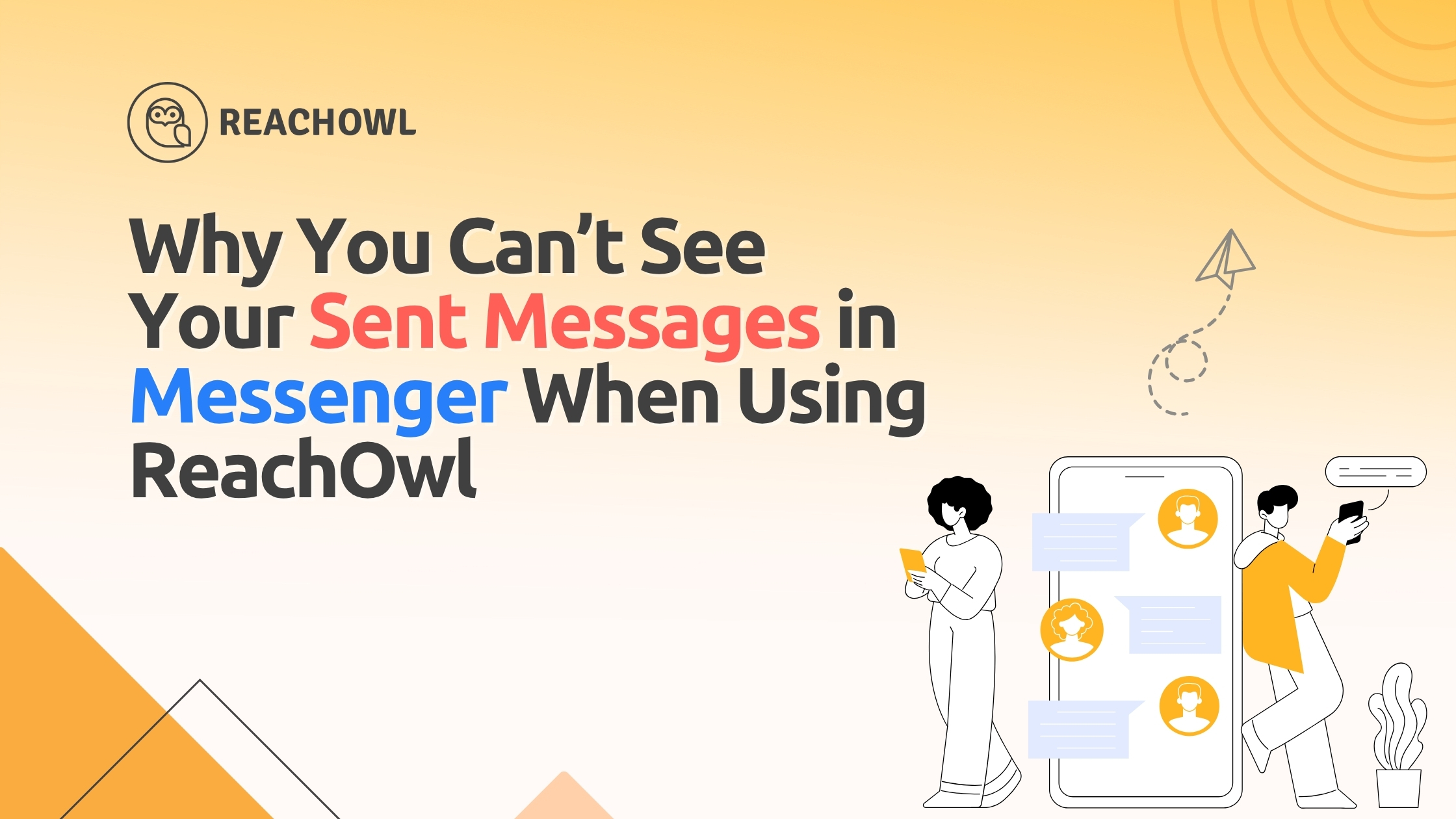If you’re using ReachOwl for Messenger automation and can’t find your own sent messages in Facebook chat, you’re not alone. It’s one of the most common questions we get.
Here’s what’s going on — and why it’s not a bug.
End-to-End Encryption Hides Your Own Messages
Facebook Messenger now supports End-to-End Encryption (E2EE) in private chats. It’s a security feature that makes messages readable only on the sender’s and recipient’s devices. Even Facebook can’t see the content — and neither can third-party platforms.
So when a message is sent using ReachOwl:
- Facebook encrypts the chat.
- Your message is delivered to the recipient.
- But you won’t see it on your side — not even in your own Messenger thread.
This is not a ReachOwl issue. It’s Facebook’s encryption policy at work.
If the conversation is encrypted, you won’t be able to view your own automated messages. But the recipient will still receive them.
How Do You Know the Message Was Sent?
Reachowl is integrated with Facebook’s official APIs and logs every message transaction. So, when it says a message was “sent successfully,” that means:
- The message was handed off to Facebook’s servers.
- No delivery errors occurred.
- The message was likely received on the recipient’s device, unless you were blocked.
To confirm delivery:
- Use ReachOwl’s message logs or campaign history.
- Every message is recorded and time-stamped.
Even if it’s not visible in Messenger, it’s in your ReachOwl dashboard.
What You Can Do About It
If you’re testing campaigns or need visibility into what’s being sent, here’s what we recommend:
1. Avoid Encrypted Chats When Testing
Start a conversation where E2EE is not turned on. That way, your automated messages will show up normally in Messenger.
2. Use a Test Profile
Set up a separate Messenger account just for campaign testing. You can control the chat settings and monitor both sides.
3. Track Messages Through ReachOwl
Rely on your ReachOwl campaign dashboard to verify what was sent. It provides a full record, even if Messenger hides the message.
4. Set Expectations with Your Team or Clients
Let your internal team or clients know that this is a Facebook behavior, not a ReachOwl flaw. Understanding how encryption works prevents confusion.
Final Thoughts
ReachOwl is designed to work within Facebook’s ecosystem, including its encryption policies. While end-to-end encryption improves user privacy, it also limits what you can see — even as the sender.
If your campaign says “sent,” it was sent.
And if you ever want to double-check, your ReachOwl message history has your back.
For more details on encrypted messages, see Facebook’s official documentation.

